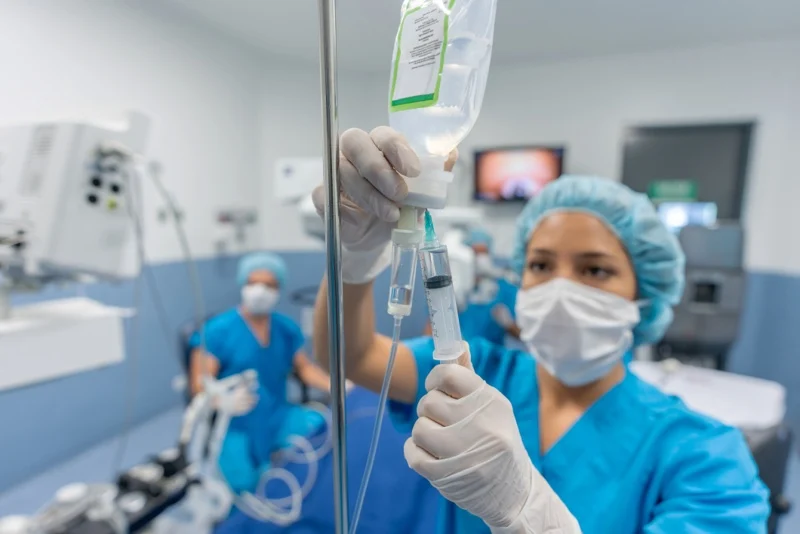REGiMMUNE touts 'compelling' midstage data in stem call transplant patients, readies phase 3
2022-12-20
临床结果临床2期临床3期上市批准ASH会议

Preview
来源: FierceBiotech
Earlier studies have shown that a single dose of RGI-2001 given on the day of transplant was safe and potentially contributed to preventing acute graft-versus-host disease.
REGiMMUNE’s lead candidate to prevent graft-versus-host disease after stem cell transplants has passed its phase 2 trial, setting the Taiwan-based biotech up for a late-stage test.
The therapy, dubbed RGI-2001, is designed to activate regulatory T cells through a novel mechanism that the company claimed could also have applications for the treatment of other autoimmune and chronic inflammatory diseases.
The study assessed 47 patients across the U.S. who received six weekly doses of RGI-2001—as well as standard immunosuppression in the form of Prograf and methotrexate—following allogeneic hematopoietic cell transplantation. Between 20% and 40% of patients who undergo this form of transplant develop clinically significant acute graft-versus-host disease (aGvHD). The disease is a reaction of donor immune cells against host tissues that is associated with significant morbidity and death.
The results, which the company presented at the American Society of Hematology annual meeting earlier in the month, showed that there were no cases of engraftment failure and no serious adverse events attributed to RGI-2001.
In the first 100 days, 20% of patients experienced aGvHD of grades II to IV, although only two of these cases were grade III or IV severity, the company noted. By Day 180, almost 94% of participants had survived, with 75% having avoided aGvHD of grades II to IV and just 4% experiencing disease relapse.
RGI-2001 contains the active moiety α-GalCer encapsulated in a liposomal glycolipid. This is designed to bind to the CD1d receptor of antigen-presenting cells resulting in activation of invariant natural killer cells, ultimately modulating the GVHD pathogenic cascade.
“We are definitely encouraged by the positive results from this study; it also provides a strong foundation to confidently advance our plans for phase 3 study,” REGiMMUNE CEO Kenzo Kosuda said in a statement Dec. 20.
There are already a few drugs on the market for various severities of GvHD disease. Last year, Kadmon—since acquired by Sanofi —nabbed an FDA approval for its first-in-class ROCK2 inhibitorROCK2 inhibitor Rezurock for a chronic form of GVHD. It joined Johnson & Johnson and AbbVie’s BTK inhibitorBTK inhibitor Imbruvica as well as Incyte’s Jakafi.
The most recent regulatory development was almost exactly a year ago, when Bristol Myers Squibb's long-standing rheumatoid arthritis drug Orencia was granted another lease on life after an FDA approval for aGVHD.
更多内容,请访问原始网站
文中所述内容并不反映新药情报库及其所属公司任何意见及观点,如有版权侵扰或错误之处,请及时联系我们,我们会在24小时内配合处理。
来和芽仔聊天吧
立即开始免费试用!
智慧芽新药情报库是智慧芽专为生命科学人士构建的基于AI的创新药情报平台,助您全方位提升您的研发与决策效率。
立即开始数据试用!
智慧芽新药库数据也通过智慧芽数据服务平台,以API或者数据包形式对外开放,助您更加充分利用智慧芽新药情报信息。





